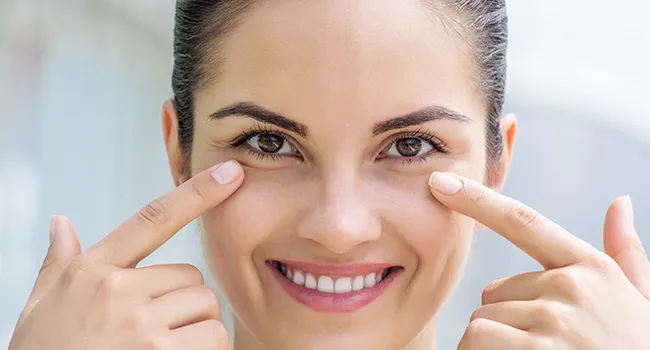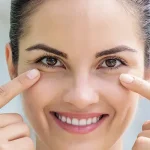Eyes, being one of the most important sensory organs, need proper care at all times. The eyes can suffer from several issues like:
Refractive Errors
Refractive errors are the most common type of eye ailment that people suffer from. A few refractive errors that the human eye suffers from are myopia or near-sightedness, hyperopia which is also called as farsightedness, astigmatism that is defined as distorted vision, and presbyopia which affects people between the age 40–50 years and is accompanied by difficulty in focusing up close, or by an inability to read newspapers, magazines or books. Refractive errors, in general, can be corrected by eyeglasses, and contact lenses, and may also require surgery in some cases.
Age-Related Macular Degeneration
Macular degeneration that is often termed as age-related macular degeneration (AMD) affects the macula and is an eye disorder that affects the central vision that is important for seeing objects clearly. It also aids in routine activities such as reading and driving.
Cataract
A cataract is clouding of the eye’s lens and is the leading cause of blindness worldwide and is also the leading cause of vision loss world over. Unfortunately, cataracts can occur at any age, and can even be present at birth.
Diabetic Retinopathy
Diabetic retinopathy (DR) is often associated with diabetes and involves progressive damage to the retinal blood vessels.
Glaucoma
Glaucoma is often considered to be a group of eye ailments that damages the eye’s optic nerve and results in vision loss and blindness. Glaucoma generally occurs when the fluid pressure inside the human eyes begins to rise.
Dry eye disease
The condition of dry eye diseases occurs when tears are unable to provide an optimum level of lubrication to the eyes. It can also happen if human eyes are unable to produce enough tears. Dry eyes may occur if this lack of tears often leads to inflammation and damages the surface of the eyes.
People suffering from this condition often feel discomfort in the form of burning or stingy eyes. They might also be uncomfortable while travelling in an aeroplane, or sitting in an air-conditioned room. They can also feel uncomfortable while performing routine tasks like riding a bike or after looking at a computer screen for long periods of time.
Apart from eye ailments stated above, the human eyes can also face an ocular disease like Amblyopia and Strabismus.
With such a long list of eye ailments stated above, one may be in doubt as to what is the best way to take care of eyes. For starters, one may do the following to take care of the eyes:
- Eat a healthy, balanced diet –
Your diet should include plenty of fruit, vegetables, food high in omega-3 fatty acids. Fish is a rich source of omega-3 fatty acid.
- Maintain a healthy weight –
Being overweight increases your risk of developing diabetes. Having diabetes puts one at higher risk of getting diseases such as diabetic retinopathy or glaucoma.
- Get regular exercise –
Getting regular exercise lowers the risk of getting diseases like hypertension which in turn reduce the risk of eye diseases.
- Wear sunglasses –
Sun exposure can damage your eyes and raise your risk of cataracts. Using sunglasses that block out 99 to 100 percent of both UV-A and UV-B radiation can help to protect eyes.
- Wear protective eye wear –
One especially needs eye protection when playing certain sports, working in jobs such as factory work and construction.
- Avoid smoking –
Smoking increases the risk of developing age-related eye diseases such as macular degeneration and cataracts and can damage the optic nerve.
- Know your family medical history –
Some eye diseases are inherited, so it helps to find out if anyone in one’s family has had them.
- If you wear contacts, take steps to prevent eye infections –
While providing comfort, contacts can cause infections if misused. Wash your hands well before you put in or take out your contact lenses. Also, follow the instructions on how to clean them properly, and replace them when needed.
- Give your eyes a rest –
Especially if one uses a computer, it becomes essential to give eyes proper rest. To reduce eyestrain, try the 20-20-20 rule: Every 20 minutes, look away about 20 feet in front of you for 20 seconds.
- For Dry Eyes –
If you have chronic dry eyes, use eye drops even when your eyes feel fine to keep them well lubricated.
Finally, Vitamin A is a panacea to many eye problems. Its deficiency can cause issues, including the most common night blindness. Foods rich in Vitamin A are dairy products, liver, fish, and fortified cereals, carrots, broccoli.
For more information on protecting your eyes, reach out to expert eye specialists at Centre for Sight and let our expert ophthalmologists guide you through.
Article: A lowdown on complete eye care
Author: CFS Editorial Team | Oct 07 2020 | UPDATED 02:10 IST
*The views expressed here are solely those of the author in his private capacity and do not in any way represent the views of Centre for Sight.





